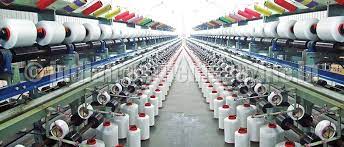In a bid to bolster local yarn and fabric manufacturers, the Turkish government recently implemented a significant hike in taxes on textile imports, a move that has sparked concerns among Turkish clothing manufacturers. The sector, which stands as the third-largest supplier of apparel to Europe, fears that higher production costs may jeopardize its competitive edge and result in job cuts. The tariff increases, ranging from 30-100% on hundreds of incoming textile products, have been met with apprehension from industry leaders who warn of potential consequences for one of Turkey’s largest employment sectors.
Challenges Faced by Turkish Clothing Manufacturers:
The apparel industry in Turkey, known for supplying major European brands such as H&M, Mango, Adidas, Puma, and Inditex, is already grappling with various challenges. The recent tax hikes are exacerbating the industry’s struggles, with concerns about rising import costs and the potential loss of market share to competitors like Bangladesh and Vietnam. The sector is experiencing the cumulative impact of soaring inflation, waning demand, and narrower profit margins, partly attributed to an overvalued lira and Turkey’s unconventional approach to interest rate policies.
Impact on Global Market Position:
Turkey, the world’s fifth-largest textile and sixth-largest clothing exporter, holds a significant position in the global market. However, its share of the European market has experienced a decline, slipping from 13.8% in 2021 to 12.7% in the previous year. While Turkey became a favored choice for Western customers during the COVID-19 pandemic, the combination of reduced shipping costs and domestic inflation eroded its competitive advantage.
Cost Disparities and Market Dynamics:
The increase in tariffs has led to a notable price disparity, with a Turkish-made t-shirt now costing 40% more for European shoppers compared to a similar product from Bangladesh. Industry leaders, such as Seref Fayat, Chairman of Turkey’s TOBB Clothing and the Apparel Industry Assembly, highlight the challenge of fashion brands absorbing higher prices beyond a certain threshold, ultimately risking market losses.
Strategies for Adaptation:
Amid these challenges, industry voices like Timur Bozdemir, president of DF Manhattan Inc, stress the need for Turkey’s apparel industry to shift from mass production to value-added approaches. Bozdemir believes that while the new tariffs will increase the cost of a $10 t-shirt by a modest 50 cents, there is an opportunity for the industry to focus on value-driven production to maintain competitiveness.
As Turkish clothing manufacturers grapple with the aftermath of increased textile import tariffs, the industry faces a pivotal moment. The potential for job cuts and the risk of losing market share to competitors underscore the urgency for strategic adaptations. Industry stakeholders must navigate the evolving landscape, balancing the need for protecting domestic producers with the imperative of maintaining global competitiveness. The interplay of economic factors, including currency depreciation and global market dynamics, will continue to shape the trajectory of Turkey’s apparel industry in the coming months.

